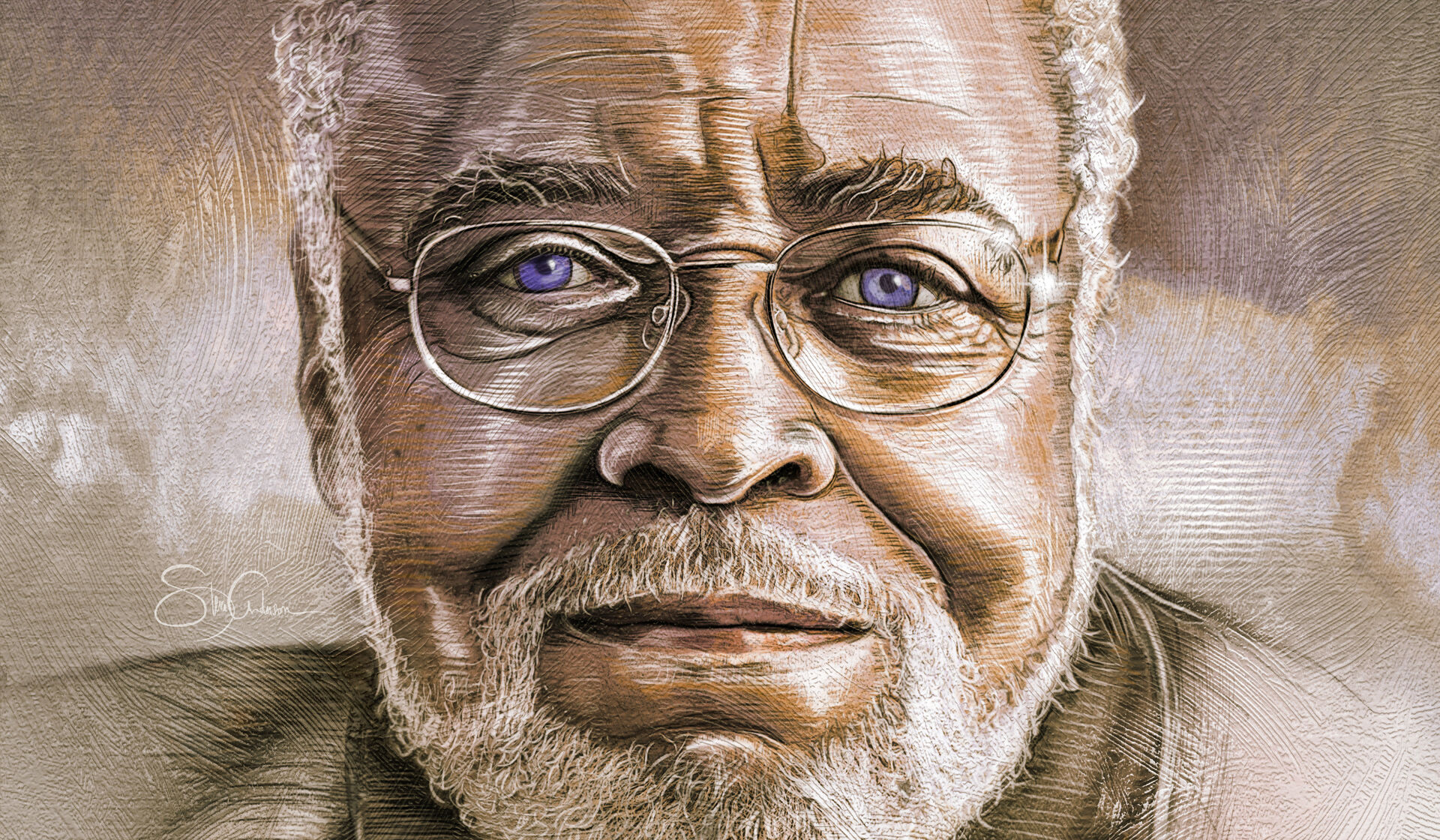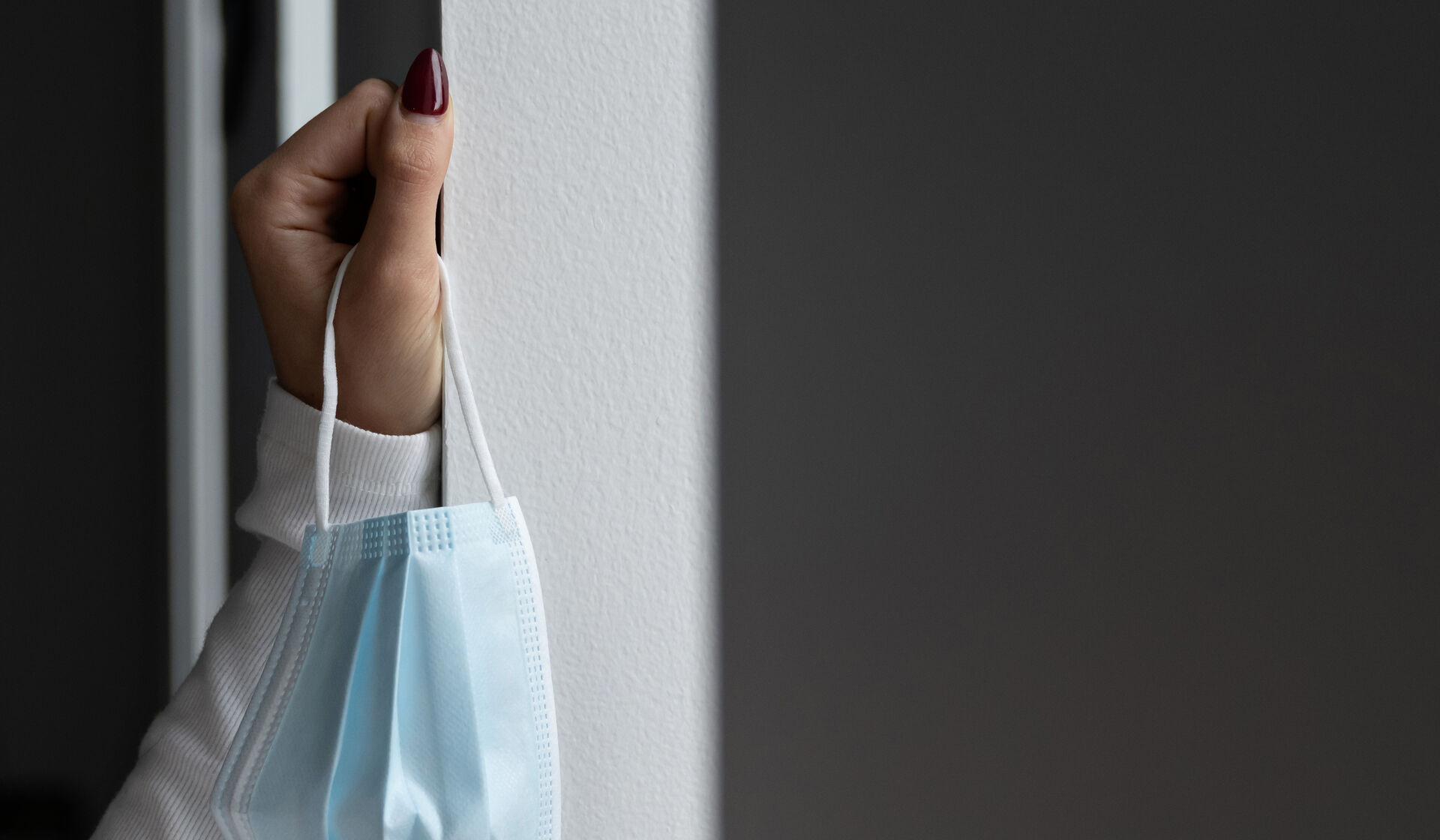The scourge of the coronavirus pandemic has been likened to war and health care workers to front-line soldiers in the fight. They devote hour upon hour to exhaustive, dangerous work they could not have imagined mere months ago, all in the name of helping others.
Among those on the front line are the Leaders and Best, serving in myriad occupations. While they have different professions, they all face daily struggles in the battle against the virus as it cuts a deadly swath across the globe.
Yet another, more hopeful, analogy compares these workers to a light that shines during the darkest of hours. Some of that light illuminates these pages as alumni tell just a few of the many stories of challenges and hope.
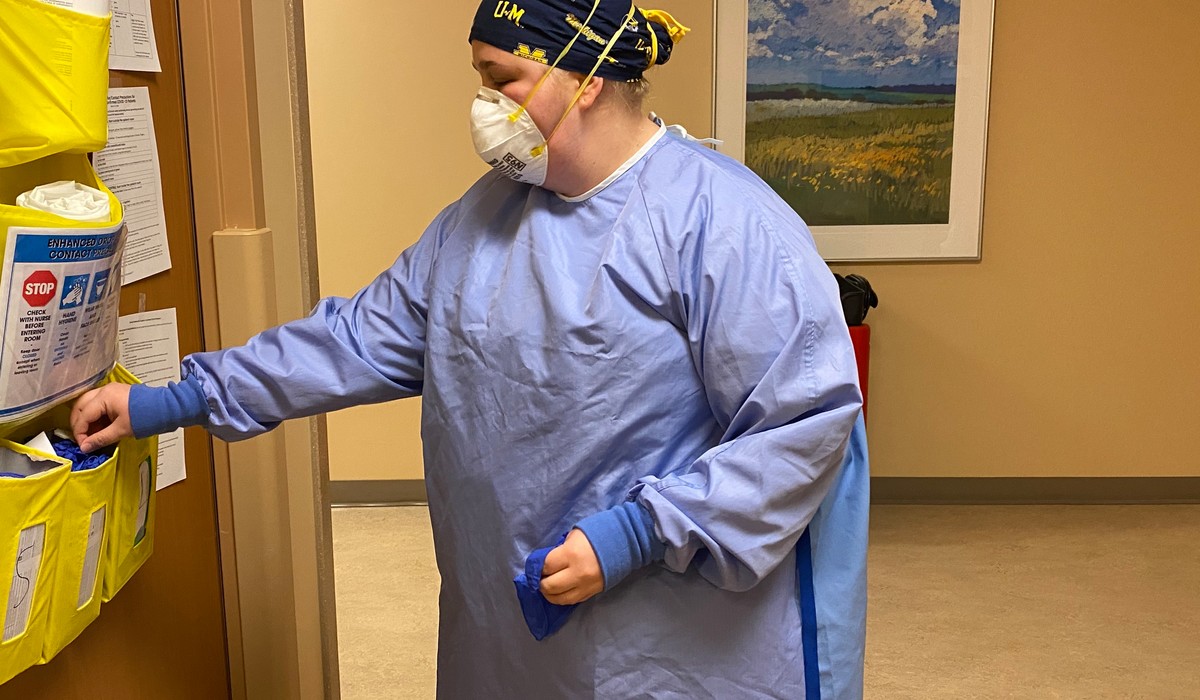
LEXIE GREEN, ’17
Registered nurse
St. Joseph Mercy, Ann Arbor
As the threat of COVID-19 became a reality in the state of Michigan, Green did not think her skills in cardiology would be applicable. But few health care workers have been spared the effects of the virus. “We have all come together during this hard time and become one big family,” says Green, seen here donning personal protective equipment (PPE) before entering a patient’s room during a surge in the number of COVID-19 patients. And while no one anticipated this deadly pathogen, she adds, “I can say that I can see the end in sight as our health care system adapts.”
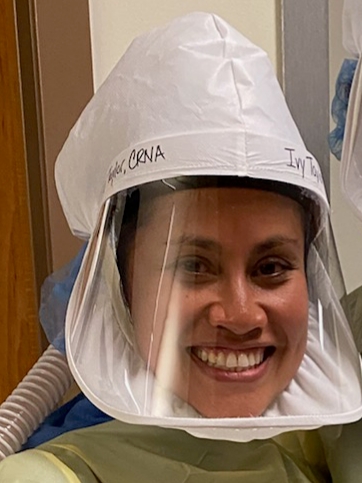
IVY TAYLOR, ’99
Certified registered nurse anesthetist
Parkland Hospital, Dallas, Texas
When this photo was taken, Taylor was preparing to help her first COVID-19 patient. It was also the first time she donned a powered air purifying respirator (PAPR). While the PAPR helped ease her anxiety, thoughts of contracting the virus still lingered. While prayers and deep breathing helped her through those times, she also found comfort as part of a team of other health care professionals. “The level of courage and selflessness I witness daily in my colleagues is inspiring and humbling,” says Taylor. “We are all navigating through these uncharted waters together.”
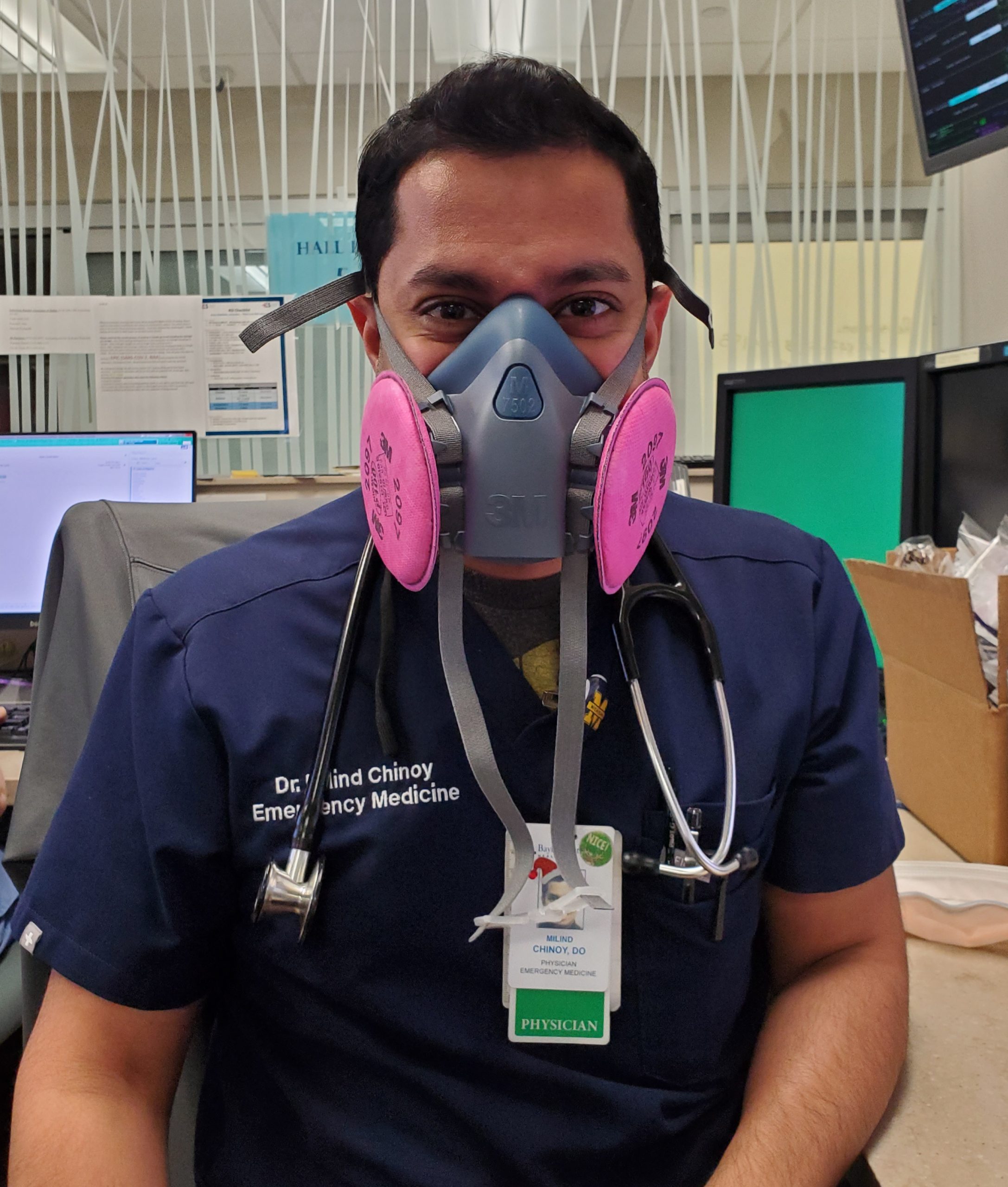 MILIND CHINOY, ’04
MILIND CHINOY, ’04
Emergency physician, assistant emergency department medical director, and trauma medical director
Baylor Scott & White Medical Center – Waxahachie, Waxahachie, Texas
Chinoy, shown here during a shift in the emergency department, was excited to receive a shipment of respirators after working with his colleagues to procure additional PPE for staff. At the time of this photo, they had not yet seen a spike in COVID-19 patients, so they “were aggressively entrenched in the anticipation/planning phase.”
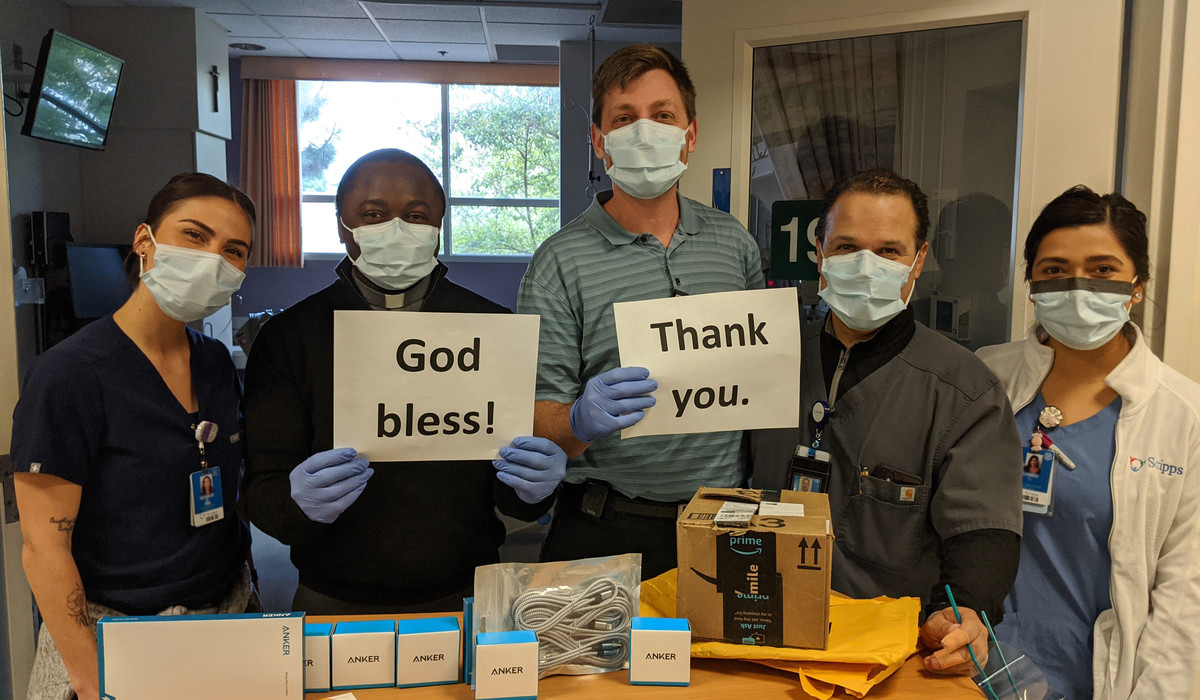 MARK WEBER, ’02
MARK WEBER, ’02
Coordinator of chaplaincy services
Scripps Mercy Hospital Chula Vista, Chula Vista, California
Weber launched a program on Facebook to collect donated cell phone chargers for COVID-19 patients cut off from loved ones while in the hospital. “That support system has been essential for patients coping with visitor restrictions, isolation, and loneliness,” says Weber, pictured with other hospital staff and holding the “thank you” sign. The collection flooded the hospital with hundreds of chargers, which were distributed at his hospital as well as a sister hospital. “Since then, I’ve created similar organic social media appeals to buy coffee for the staff, create 3D-printed mask straps, sew scrub caps, etc. Each time, I’ve been surrounded by generosity,” he says. “As my patients and staff struggle with exhaustion and anxiety, these gifts have been reminders of the grace of the human community in the face of adversity.”
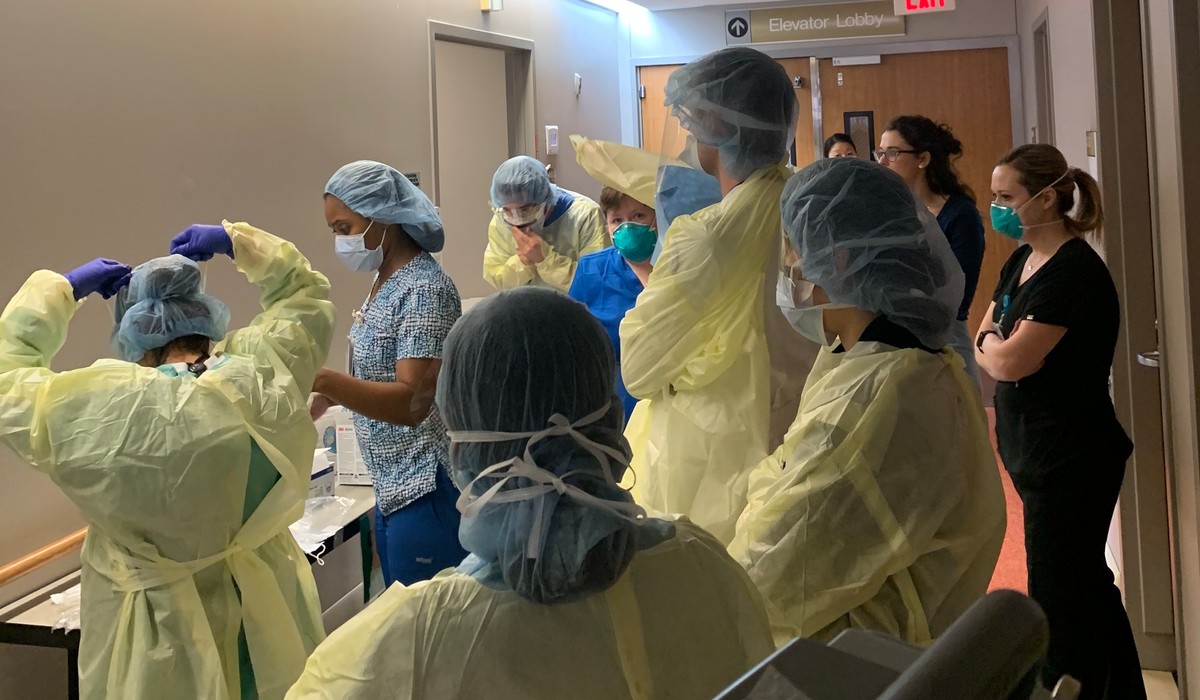 MARTIN GRUCA, ’12, MS’17, MD’18
MARTIN GRUCA, ’12, MS’17, MD’18
Second-year internal medicine resident
Northwestern Memorial Hospital, Chicago, Illinois
Gruca was doing a rotation at the local veterans hospital when he was alerted to a patient who was positive for COVID-19 and needed to be intubated. “This picture represents one of my first interactions with a COVID patient,” says Gruca, pictured in the center putting on his PPE. “As we went into this pandemic, my co-residents and I anxiously awaited the peak of the pandemic. As our hospital had limited non-urgent admissions in anticipation of a large influx of COVID patients, there was an eerily quiet period in mid-March — the calm before the storm. While I knew rationally that things were going to be difficult over the coming weeks, at this moment in the photo I was directly witnessing, for the first time, how difficult the next few weeks would be.”
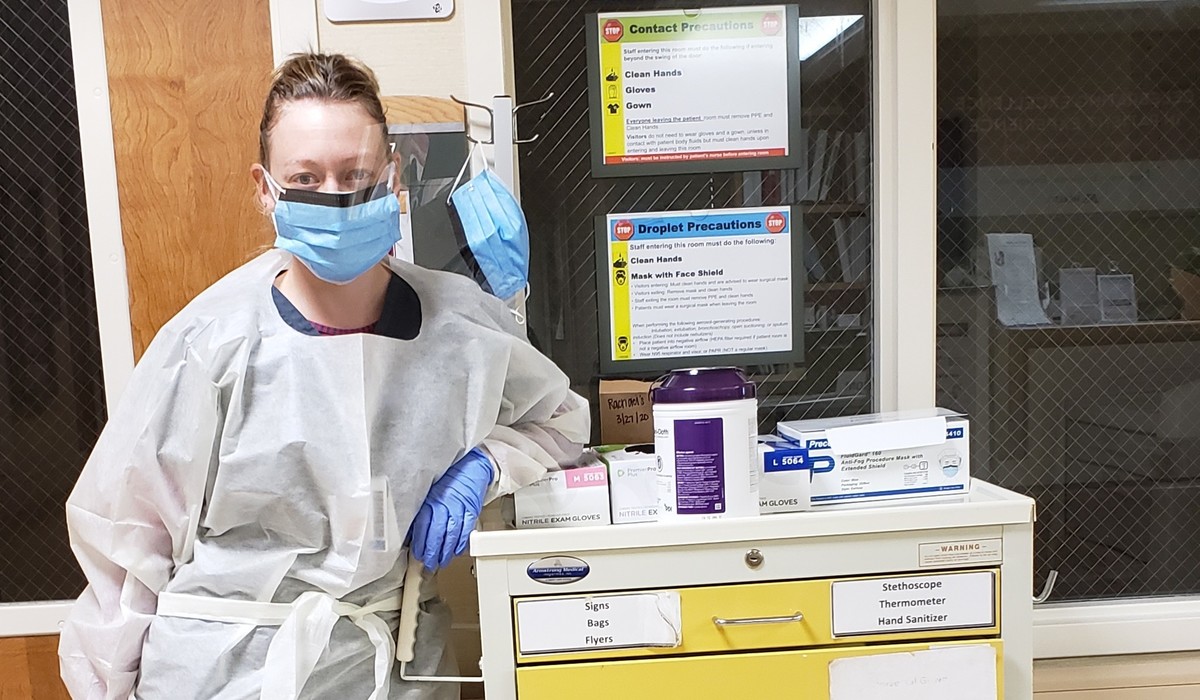 ASHLEY PIESKE, ’13
ASHLEY PIESKE, ’13
Registered nurse
M Health Fairview University of Minnesota Medical Center, Minneapolis, Minnesota
The COVID-19 outbreak presented Pieske with new challenges in her work in the organ transplant unit. “Fresh transplant recipients are naturally at a high risk for contracting infections and viruses and even more so now during the pandemic,” she says. In this photo, she had recently worked three consecutive 12-hour days; she acknowledges the fatigue, stress, and worry over exposure to the virus that has accompanied the pandemic. “Despite all that, we have received food and supply donations, signs outside the hospital thanking the staff for their work, and phone calls from family members thanking us for all we are doing. And, best of all, we s ill have the ability to help transplant patients get a second chance at life.”
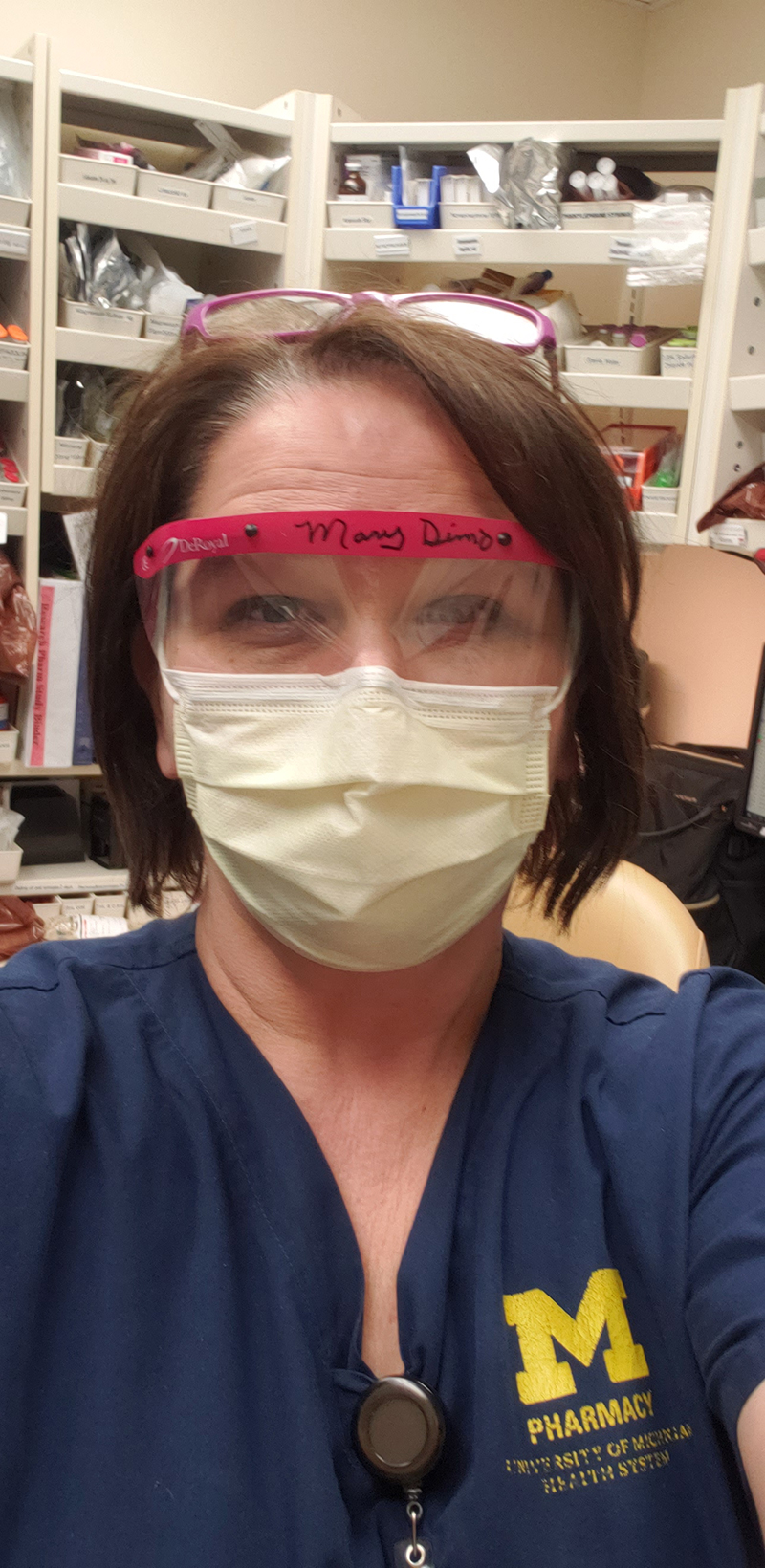 MARY DIMO, PHARMD’93
MARY DIMO, PHARMD’93
Emergency department pharmacist
Michigan Medicine, Ann Arbor, Michigan
Dimo worked in the Adult Emergency Department the night this photo was taken — March 28. It had been a busy shift, with many patients showing symptoms consistent with COVID-19 and several having to be intubated. Pharmacists in the emergency department review all medication orders, make recommendations, and procure and prepare the emergency medications needed for all patients. The pandemic has, of course, made this an especially challenging time.”
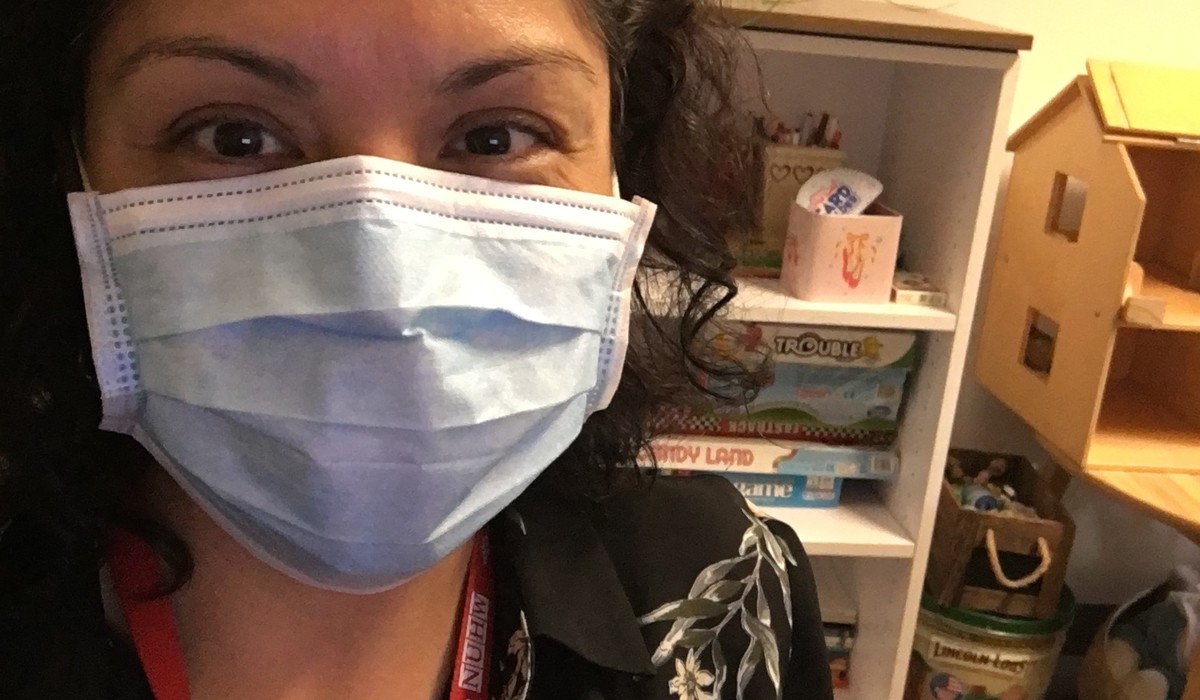 MARLEN JIMENEZ, MSW’02
MARLEN JIMENEZ, MSW’02
Psychiatric social worker
Kaiser Permanente Behavioral Health, West Covina, California
As a social worker, Jimenez has seen the toll that COVID-19 has taken on the mental health of patients and co-workers. Not only did she and other social workers continue to see patients, but they also took on the responsibility of working with patients in the emergency room department and providing emotional support to the grieving families. “We are also available to offer support to our medical team, who is not immune to the stress of COVID-19,” she says. “Anxiety is at a rise given the global uncertainty that comes with COVID-19. I expect we will see the effects for a long time after.”
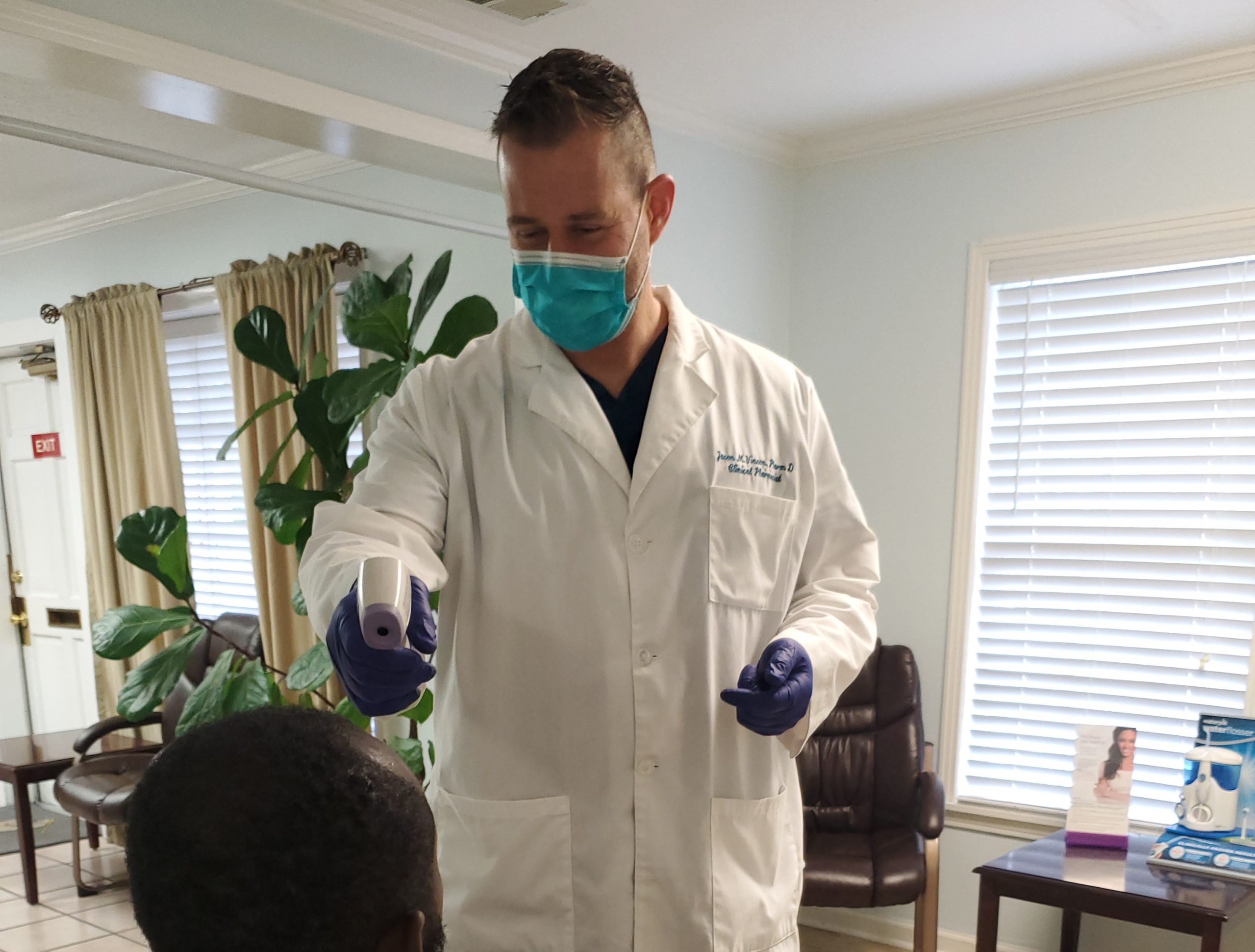
JASON VINSON, ’98
Founder of Specialty Consultative Pharmacy Services LLC, Germantown, Tennessee
Professor at the University of Tennessee Health Science Center College of Pharmacy and Union University College of Pharmacy
Dental emergencies have not ceased with the outbreak of the COVID-19 pandemic. And Vinson makes sure both patients and staff in the office of dentist Mike Pulido are protected. Vinson and his clinical pharmacy rotation students screen patients for potential exposure to the virus while evaluating all of their medications. “Dentists, dental assistants, and dental hygienists are at very high risk of contracting COVID-19 due to the types of procedures that they perform that produce aerosolized particles,” says Vinson, who was the starting punter for U-M’s 1997 national champion football team. “The ability to treat these patients at our dental office keeps them out of the emergency rooms and minor medical facilities where sicker patients need to be seen.”

JENELLE RITCHIE, ’13
Pediatric emergency room travel nurse
Currently working at Dell Children’s Medical Center, Austin, Texas
Ritchie and co-worker Karena Woo did not let their UM-OSU rivalry deter their work as pediatric nurses. “Now more than ever, it has become important to band together as teammates on the front lines of the COVID-19 battle,” Ritchie says. She adds that, as a travel nurse, she has become accustomed to adapting to many unknowns. “However, the ways in which COVID-19 has forced us to rethink and adjust our everyday practices and approach in the ER is something I never imagined I would encounter. I am proud to wear Maize and Blue wherever I go, and I am forever proud to be among the Leaders and Best fighting this battle.”
Sharon Morioka, ’84, MA’86, is the editor of Michigan Alumnus.


